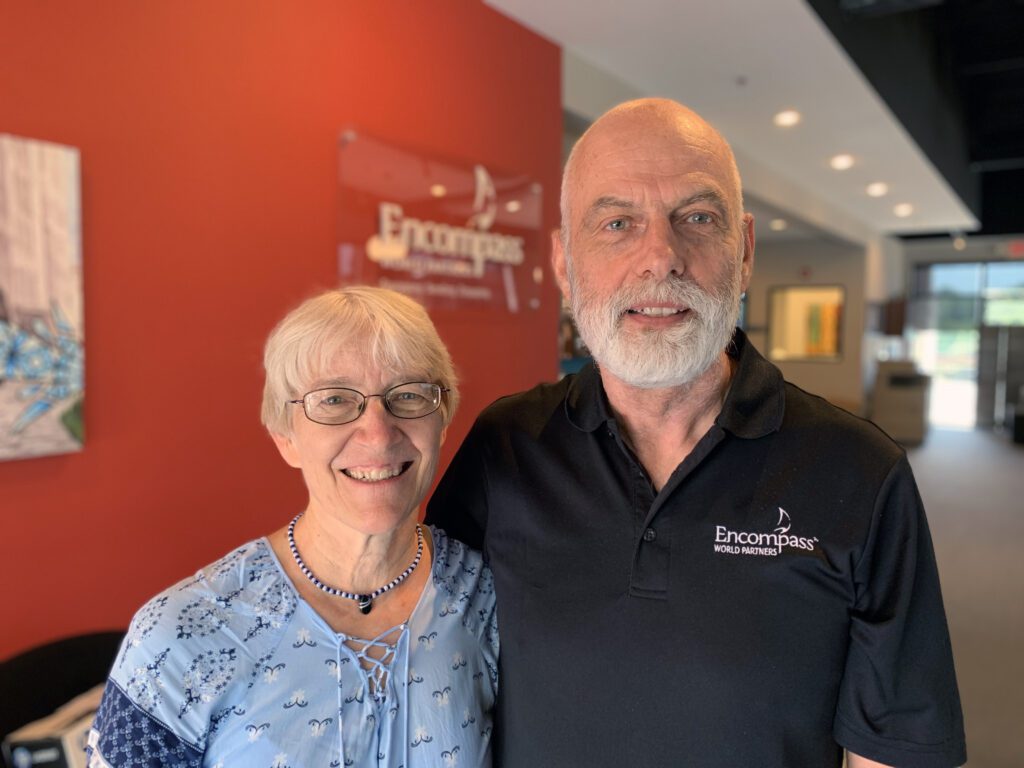Using Language to Deepen Relationships
All Encompass missionaries are required to complete our five-week training program, Engage Five. The name is not because the training is five weeks long, but because it covers five areas of focus:
- Discipleship Being: You have to BE a disciple (identity) before being a missionary
- Discipleship Making: Strategies for making new disciples
- Cross-Cultural Acumen: Learning how to engage in a different culture
- Team Dynamics: Functioning as a healthy team
- Language: Strategies for learning the local language
You’ll notice that language is one of the top five most important topics we train our new missionaries in. That’s why we typically have our missionaries dedicate their first two to three years on the field to learning the local language and culture. We even have a language coach on staff, Linda McCaman, who helps them develop strategies for learning the language and holds them accountable to those strategies. Linda emphasizes how important language learning is when she says, “That’s what you need to talk to people. How else would missionaries be able to share the gospel?”
One lesson she teaches new missionaries about language is that it’s important for people of other languages to read, understand, and work through scriptures for themselves. As English-speaking Americans, our goal shouldn’t be to impose our interpretation of scripture onto the rest of the world. She says that Americans often read scripture through western eyes when it wasn’t written from a western perspective.
For example, American culture is relatively individualistic, so we commonly interpret the word “you” to be singular when it’s often plural. Americans tend to think that each individual believer is God’s temple, when some passages describe God’s temple as being collectively made up of all believers together.
Another example: when the Bible says, “Don’t let the sun go down on your anger,” Americans typically interpret that to mean that we should go talk to the person who made us angry before going to bed that day. But other cultures interpret it to mean that we should just stop being angry! We need to forgive that person in our hearts before the sun goes down.
As you can see, language is important, and English-speaking Americans have a lot to learn from how other cultures interpret scripture!
Another lesson Linda teaches new missionaries is to stop spending so much time studying language books. Instead, she encourages them to get out and have real-world conversations with people. She says that we need to be willing to look foolish, and that making mistakes is actually good because it means we’re making an effort and improving. Locals are forgiving when they see that a foreigner is trying.
Learning a whole language is hard, which is why one associate in Japan was feeling discouraged about it, but after working at it together, she told Linda, “You helped me get unstuck.” Linda says, “That’s the most rewarding thing: seeing people be brave enough to step out and risk it—seeing that they can do it. And that’s what helps them build relationships with people.”
Even if you aren’t actively learning a new language right now, there are still lessons to be learned from Linda’s language coaching. Language is just a tool we use for connecting with people. But being vulnerable and connecting with someone on a deeper level can be scary even when both people speak the same language. Is there a way God might be calling you to bravely step out and risk being vulnerable so that you can take a relationship to a deeper level?

Pictured: Linda & Gary McCaman



